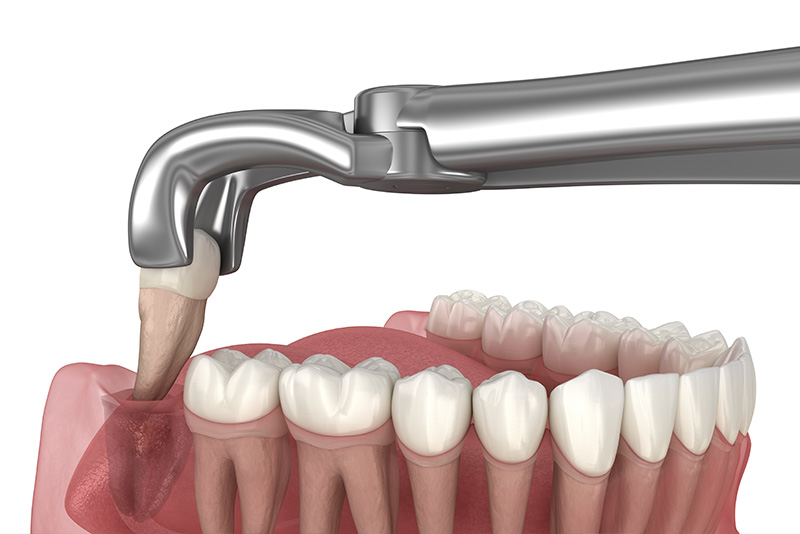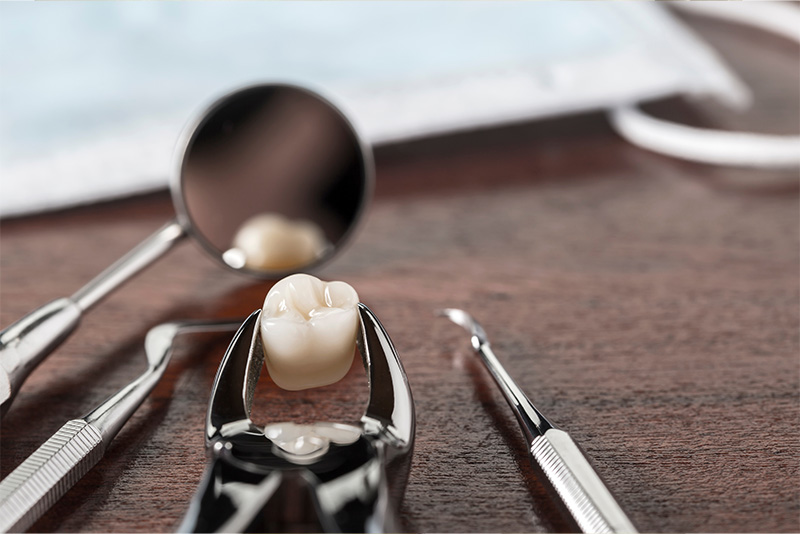Wisdom teeth, which are also known as the third molars, are the last permanent teeth to develop in the oral cavity as well as the final ones to come into place. However, as is often the case, many wisdom teeth do not have sufficient room to erupt, are not developing properly, or are causing issues for the adjacent teeth and the surrounding tissues. We frequently see patients with impacted or problematic wisdom teeth for an evaluation or extractions as indicated.
A wisdom tooth is considered impacted when it is submerged under gum tissue or bone and unable to erupt into position. Based on the type and amount of overlying tissue, impactions are classified in a few different ways. Soft tissue impactions occur when a wisdom tooth remains covered by gum tissue. If a wisdom tooth remains completely, or partially obstructed by bone, it's known as a bony impaction.


Impacted wisdom teeth can potentially cause many problems and may need to be removed when they are the source of:
Although the extraction of wisdom may be recommended for older patients, the early removal of problematic or potentially problematic wisdom teeth in young adults is often the case. Among the many reasons for this approach to care is that extractions at this stage of life are simpler, and patients experience a shorter recovery time with fewer complications.
Wisdom tooth extraction is a dental procedure to remove one or more of the third molars, commonly known as wisdom teeth. This procedure is often necessary when the teeth are impacted, causing pain, infection, or other dental issues.
Wisdom teeth may need to be removed if they are impacted, misaligned, or causing crowding of other teeth. Other reasons include recurring infections, cavities, and the potential for future dental problems.
The extraction process typically involves local anesthesia or sedation to ensure comfort. The dentist will make an incision in the gum tissue, remove the tooth, and may need to break it into smaller pieces for easier extraction.
Recovery may involve swelling, discomfort, and bleeding for a few days. It's important to follow post-operative care instructions, including rest, ice application, and a soft diet, to promote healing.
Most people recover from wisdom tooth extraction within a few days, but full healing may take a week or more, depending on the complexity of the extraction and individual healing rates.
While wisdom tooth extraction is generally safe, potential risks include infection, dry socket, nerve injury, and prolonged bleeding. Discuss any concerns with your dentist before the procedure.
If you receive sedation during the procedure, it is recommended to have someone drive you home afterward, as the effects of the sedation can impair your ability to operate a vehicle safely.
Many people take one to three days off work or school to recover, depending on how they feel and the nature of their job or studies. It's best to plan for some rest after the extraction.
After the procedure, it's advisable to stick to soft foods like yogurt, mashed potatoes, smoothies, and applesauce. Avoid hard, chewy, or hot foods that may irritate the extraction site.
Over-the-counter pain relievers, ice packs, and following your dentist's post-operative instructions can help manage pain and swelling. If discomfort persists or worsens, contact your dentist for further guidance.